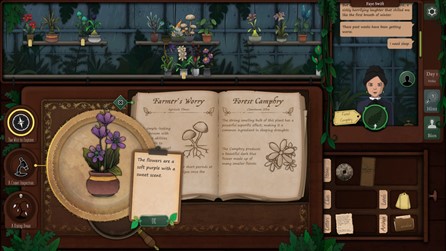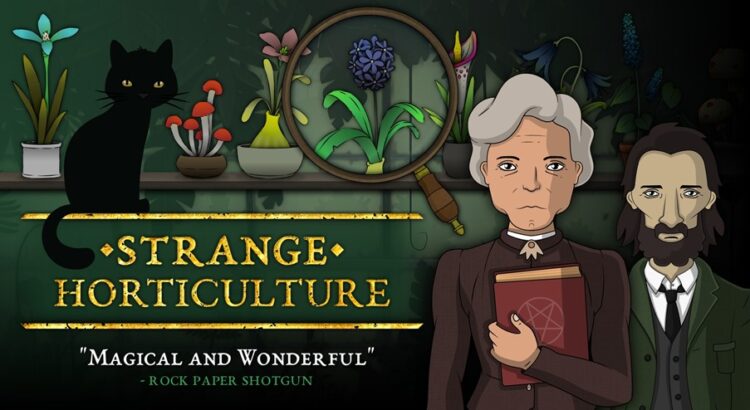We are Rob and John Donkin of Bad Viking, two brothers and indie game developers from the UK. We recently released our latest game, Strange Horticulture – an occult puzzle game in which you play as the proprietor of a local plant store in the mysterious town of Undermere. When it came to sourcing the music for the game we decided against hiring a composer, opting instead to use royalty-free music tracks from Shockwave-Sound and this blog post will talk a little bit about that process.
We set out to make a weird game that drew on our love of board games and the natural world and combined them into a cosy, relaxed experience that players can sink into. We had a very specific atmosphere in mind when we were making the game and of course, an important part of creating atmosphere is music.
Using a production music library vs hiring a music composer
It’s common to hire a composer to create original music for games. There are a number of benefits to this; you guarantee that the music in your game will be original and unique to your game, you can hire and brief a composer to fit exactly the style and genre that you want and if the music turns out to be really good, you can sell the soundtrack as an additional revenue stream.
But, depending on the game and what is required it can end up costing a fair bit. As indie devs, keeping costs and risks as low as possible is very important, so we tend to prefer licensing music. If the game doesn’t do so well, we haven’t paid through the nose and if it does there are options to extend the licence as required. Yes, it can be time-consuming trying to find the exact right track you need but the search tools available do help a lot in that regard and we like that you know exactly what you’re getting.

This is the route we took with Strange Horticulture. Our music requirements were also perhaps a little smaller than the average game. With the way it is presented, in a single screen layout, we only needed a handful of tracks to cover most of the gameplay.
For the majority of the game, which takes place within your shop, we wanted a piece of music that would play looping in the background – something quite minimalist evoking the right sense of time and place; something with a little mystery and a hint of intrigue, while also eliciting those feelings of calm and cosy in the player. Most importantly it needed to be a piece of music that wouldn’t outstay its welcome over several hours of gameplay. We spent a lot of time browsing, filtering by different emotions and genres. In the end we settled on this reflective and mesmerising piano piece, appropriately titled ‘Introspection’ by Dane Forrest Obuchowski.
As the need to act comes to a head towards the finale of the game, the music changes into something more urgent and threatening. For this, we used ‘In the Night’ by Chris Yenney. The description for the track reads “Pushing through on an adventure filled with dangers and threats. Courage and bravery brings hope to the listener” and that is exactly what you get. Although the tempo is still slow, it conveys that change in the atmosphere towards menace and uncertainty.
Finally, after seeing out the conclusion to our story the game ends with another reflective moment – an epilogue conveyed in diary form which changes depending on the choices you made and the path you ended up taking. For this, we found another very appropriately named track titled ‘The End of All Things’ by Francesco Giovannangelo. The piece is slow, melancholic and thoughtful – a fitting resolution to Strange Horticulture.
We hope you found this interesting. If you’re interested in Strange Horticulture, it’s out now on Steam, Epic, and GOG.





